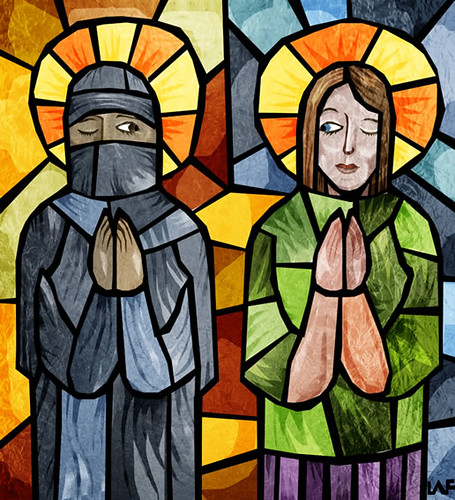The low point of this was the 1986 Assisi Conference, where the Pope made believe he was just one of the boys. Someone put a statue of Buddha on top of the tabernacle. Later on, he kissed a Koran.
So now, in the period of post 60's Enlightenment, we make believe that the natural and default position of religions and religious leaders is to be friendly, even if we, regretfully, differ on some minor religious matters. An exquisitely polite superstructure developed out of this.
I have always thought, well, at least since my 30s, that the only reason the "ecumenical movement" could have arisen was that religion was not important anymore, at least in the West.
The sundering of Church and State, Church and society, and especially Church and power, made it ok to be friendly with your former mortal enemies because there was no longer anything serious at stake. Religion rarely got you status and it rarely stymied you in society.
In typically anocranial style, Enlightenment Westerners made believe that their awakening naturally included the whole world. So religions like Islam...from Day 1 the mortal enemy of Christendom...suddenly became alternative forms of moral monotheism.
But the plan of salvation also includes those who acknowledge the Creator,
in the first place amongst whom are the Moslems: these profess to hold
the faith of Abraham, and together with us they adore the one, merciful God,
mankind's judge on the last day. 

1 comment:
Just came across this post, and it's exactly right. God may not be dead, but religious belief certainly is. If you can "respect" other religions that differ from your own on fundamental points, then you don't really believe your own religion.
Post a Comment